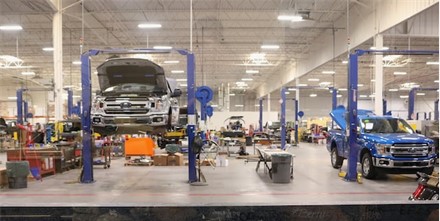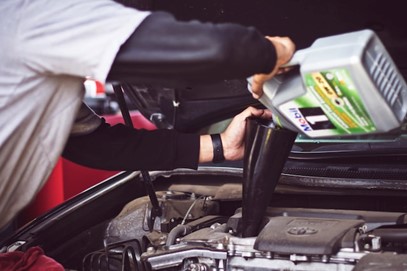
Drivers across the nation have been facing months-long waits as auto repair shops continue to struggle with the lack of available parts. Mechanics are still juggling supply chain problems caused by the pandemic and various geopolitical events.
These issues mean that those looking for car repairs should expect to have a much longer wait and higher cost for repairs. However, it appears that it’s mostly just bigger items that are substantially affected.
According to Cars Protection Plus, repairs involving transmissions, engines, and other larger items are encountering extensive waiting periods. Tires, brakes, and other basic parts, though, don’t seem to be impacted by supply chain issues as much.
Drivers Should Still Expect Repair Delays As Supply Chain Problems Persist
Almost every collision center around the country currently has more cars than it can repair. Parts, back orders and staffing shortages are all contributing to the delay, and affected drivers are in disarray.
However, they aren’t the only ones — it’s safe to say that auto repair shop owners and mechanics aren’t exactly thrilled about the ongoing issues either.
Mechanics are just as frustrated with the extended durations of some repairs, especially when they’re often waiting for only a single part for some of them.
It Isn’t Just Affecting Smaller Mechanic Shops
Initially, many people believed the supply chain problems would only disrupt operations at local mechanic shops, but that doesn’t seem to be the case — dealerships are also impacted.
One driver told CBS Los Angeles that it took a week just to get his car into a dealership to diagnose the issue! The strain can be felt from all angles, regardless of the repair shop’s size.
Loan Cars Are Limited Too
Naturally, people requiring vehicle repairs need a replacement vehicle while they wait, but due to the backlogs stemming from staffing and parts shortages, the loaners are dwindling.
Many unhappy drivers have reported to be without a car for at least a week before a loaner vehicle was even available. Many are finding it incredibly difficult to get to and from work and stores, diminishing quality of life and independence.
Ongoing COVID-19-related challenges have wreaked havoc on all parts of the automotive industry. From car shortages causing a bottleneck of new vehicles to the difficulties transporting parts to those who need them, the battle isn’t over yet.

And Parts Are More Expensive When They Do Arrive
Drivers should also anticipate spending more than they would have previously on these long-awaited parts. Products such as tires, wiper blades, and just about any other vehicle-related product is roughly 20% more expensive, and they don’t appear to be getting cheaper anytime soon.
Check Part Availability Before Sending Vehicles to the Auto Repair Shop
Industry insiders encourage drivers to check part availability at their chosen repair shop before taking their car in. If it’s still safe to drive, waiting for the part before relinquishing the vehicle is a more reliable way to ensure residents retain travel capabilities.
